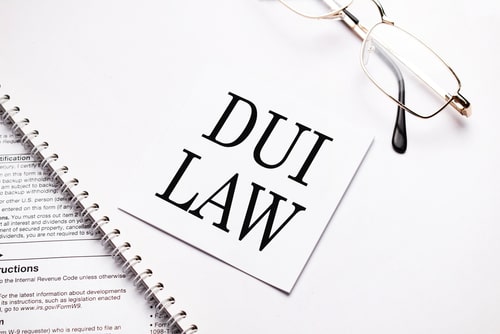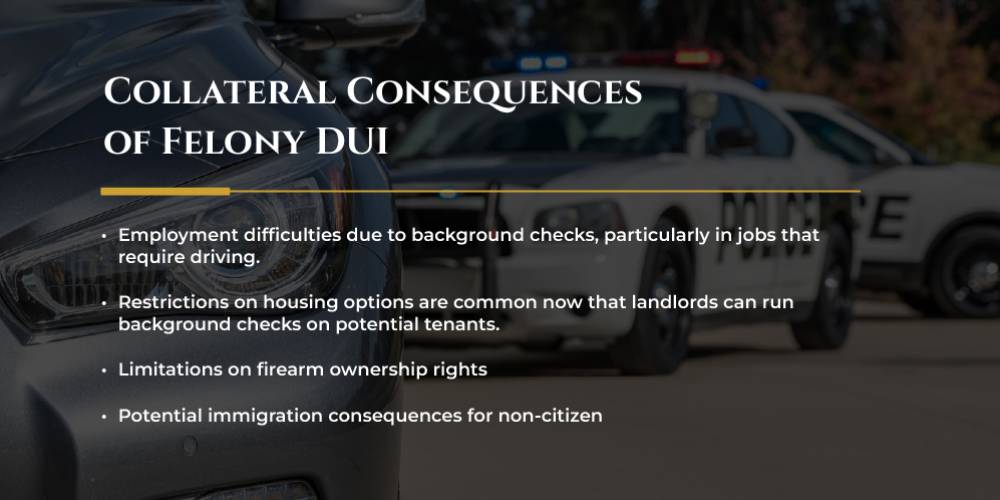When Does a Repeat DUI Turn into a Felony?
 In Illinois – as in most states – a first or even second DUI often begins as a misdemeanor. Unfortunately, this can change quickly, and driving under the influence (DUI) can have serious, life-altering repercussions in the state. Although a first-time DUI will likely be charged as a misdemeanor, repeat offenses can escalate to felony charges.
In Illinois – as in most states – a first or even second DUI often begins as a misdemeanor. Unfortunately, this can change quickly, and driving under the influence (DUI) can have serious, life-altering repercussions in the state. Although a first-time DUI will likely be charged as a misdemeanor, repeat offenses can escalate to felony charges.
The difference may come down to specific statutory triggers, prior convictions, and the presence of aggravating circumstances. Understanding when and how this escalation occurs is crucial for anyone facing multiple DUI allegations. A Will County, IL lawyer can help you determine how to move forward with your case.
Misdemeanor vs. Felony DUI
In Illinois, the distinction between misdemeanor and felony DUI charges depends on several factors, such as:
First and Second DUI Offenses
Generally, first and second DUI offenses in Illinois are classified as Class A misdemeanors (730 ILCS 5/5-4.5-55). However, it is important to note that even these "lesser" charges carry significant penalties, including:
- Fines up to $2,500
- Up to one year in jail
- License suspension for a minimum of one year
- Mandatory alcohol education and treatment programs
- The Transition to Felony DUI
Third DUI Offense
A third DUI offense in Illinois marks the transition into felony territory. This charge is classified as a Class 2 felony and carries more severe consequences:
- Fines up to $25,000
- Three to six years in prison
- License revocation for a minimum of 10 years
- Mandatory residential alcohol treatment program
Fourth and Subsequent DUIs
- A fourth DUI is a Class 2 felony with three to seven years in prison, a fine as large as $25,000, and a minimum 10-year driver’s license revocation. Probation is a possible alternative to prison; however, it would require a minimum of 10 days in jail or 480 hours of community service.
- A fifth DUI is a Class 1 felony with no probation or conditional discharge allowed, and a mandatory minimum fine of $5,000. If a minor under the age of 16 was in the vehicle, there is a mandatory fine of $25,000 and 25 days of community service that benefits children.
- A sixth or subsequent DUI is a Class X felony, resulting in a mandatory prison sentence of six to 30 years, fines of up to $25,000, and a lifetime revocation of the driver’s license. If there are prior felony convictions or the DUI caused a death, the sentence can extend to up to 60 years.
These higher-level DUI felonies come with very harsh penalties, including longer prison sentences, higher fines, and extended or permanent license revocation.
Aggravating Factors That Can Turn a DUI Charge into a Felony
Certain circumstances can elevate a DUI charge to a felony, even if it is not a third or subsequent offense:
- DUI resulting in great bodily harm or permanent disability
- DUI committed while transporting a child under 16 years old
- DUI committed without a valid license or insurance
- DUI committed in a school zone when school is in session
In these cases, even a first or second offense can be charged as a felony, bypassing the typical progression from misdemeanor to felony.
Is There a Look-Back Period for DUIs in Illinois?
While many states have a specific "look-back" period for DUI offenses, Illinois does not. This means that all prior DUI convictions, regardless of how long ago they occurred, can be considered when determining whether a new offense should be charged as a felony. That said, the state uses a 20-year look-back period specifically for license revocation penalties for a second DUI, and the penalties escalate with each subsequent offense, leading to a lifetime revocation for a fourth DUI.
Collateral Consequences of Felony DUI
Beyond the immediate legal penalties, a felony DUI conviction can have far-reaching impacts on various aspects of life:
- Employment difficulties due to background checks, particularly in jobs that require driving.
- Loss of professional licenses: doctors, lawyers, nurses, real estate agents, and other licensed professionals can face disciplinary action or suspension, which can jeopardize their careers.
- Restrictions on housing options are common now that landlords can run background checks on potential tenants.
- Limitations on firearm ownership rights
- Potential immigration consequences for non-citizens
Illinois will report an out-of-state DUI to the home state, potentially resulting in a license suspension there as well. Felony DUI cases can be complex and time-consuming, with factors like scheduling, discovery, and potential trials adding to the timeline. The compounding nature of these consequences underscores the importance of addressing DUI charges proactively and effectively.

Defending Against Felony DUI Charges
Given the severe consequences of felony DUI convictions, creating a strong defense is crucial. The legality of the traffic stop may be challenged, particularly if the officer had no reasonable suspicion to stop the suspect. Reasonable suspicion could involve driving behaviors such as weaving across the center line, driving too fast or too slow, or running a stop light or stop sign.
A defense attorney can contest the accuracy of field sobriety tests or breathalyzer tests based on a number of issues, including illnesses, medications, age, weight, gender, breathalyzer inaccuracies, improper administration, and even profession. There may have been procedural or constitutional violations during the arrest, such as the mishandling of blood samples or violations of Fourth Amendment rights if the police searched the vehicle without proper authorization.
The defendant’s Miranda rights may have been violated if he or she was interrogated while in custody without being read his or her rights, or if he or she was denied access to an attorney. Whether or not the defendant was actually impaired while driving may be challenged. All of these issues can help in negotiating reduced charges or alternative sentencing options.
If the prosecutor’s case does not look winnable, there may be a plea to reduce the DUI charges to a lesser charge, such as a "wet reckless" plea, which has much less severe penalties and could even prevent the charges from being a felony offense. Each case is unique, and the most effective defense strategy depends on the specific circumstances surrounding the arrest and the individual’s prior record. A DUI attorney can evaluate the details of your case and develop a tailored defense approach to protect your rights and pursue the best possible outcome.
Contact a Joliet, IL DUI Lawyer
The complex legalities of repeat DUI offenses require guidance. A Will County, IL criminal defense attorney can provide invaluable assistance in understanding your rights, exploring defense options, and working towards the best possible outcome for your case. Preventing a DUI from being charged as a felony, or avoiding a felony conviction for a DUI, is the highest priority when protecting your future.
McNamara Phelan McSteen, LLC is a mid-sized, aggressive law firm with specific experience in different fields. Attorneys with the appropriate experience in each area will handle your case with skill, professionalism, and compassion. Call McNamara Phelan McSteen, LLC at 815-727-0100 to schedule your free consultation.
 815-727-0100
815-727-0100













